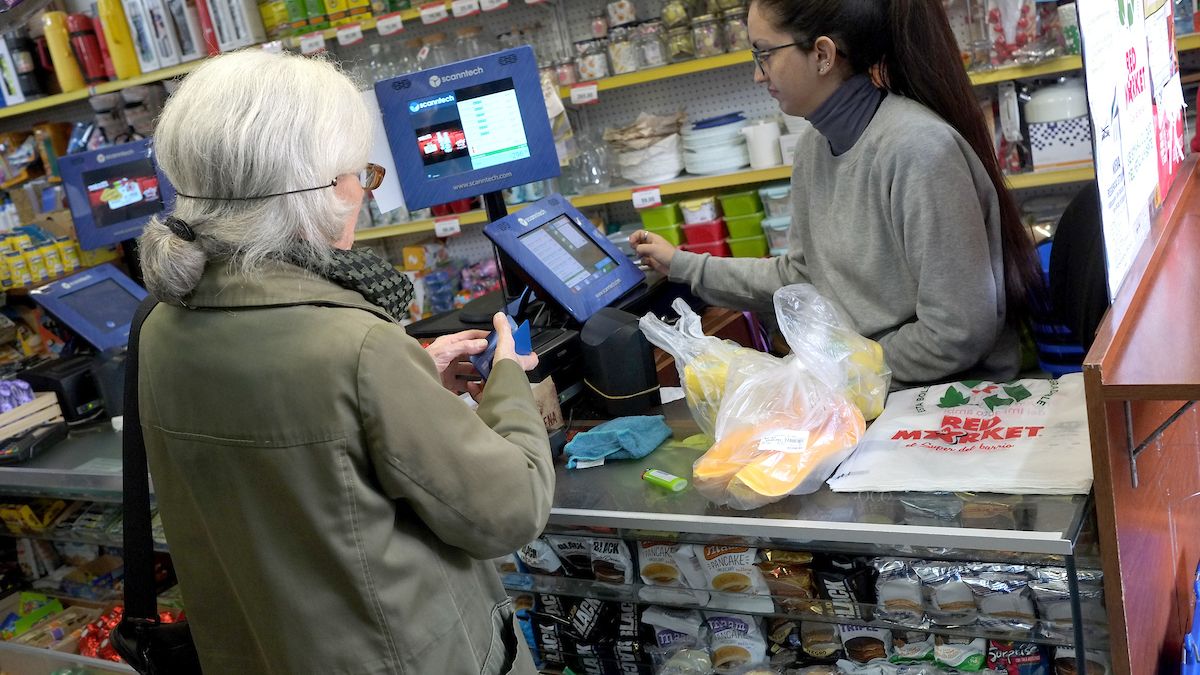The sector of trade and services in Uruguay was one of the hardest hit by the pandemic and, when other sectors of the economy were beginning to overcome that crisis, it had to face a new one, derived from the enormous price differential who lives the country with Argentina.
According to the latest activity report prepared by the Chamber of Commerce and Services of Uruguay (CCSUy), activity entered stagnation in the second quarter of the year, after months of slight improvements, but which failed to consolidate sustained growth.
Ana Laura Fernandezeconomic advisor of the CCSUy, explained to Ambit that although the current situation of the sector is dominated by exchange difference with Argentina –which after the post-election rise of the blue dollar rose to 200%-, the fact that “Uruguay “It is an expensive country” has been a reality for years. In this regard, he detailed the policies that the Chamber promotes to reverse this situation and support one of the primary activities of its economy.
Are there current factors in Uruguay that affect the reality of the sector or is there also an effect of the end of post-pandemic economic growth, as occurred in the region?
– At the end of 2021-2022 there was a rebound not only due to the end of the pandemic, but because there was an opening of borders and that had a positive impact on what has to do with the commerce and services sector. The reality that we are having today is the price differential with Argentina and it is a fundamental factor in the sector. But it is also a reality that the economy, as a whole, will have meager growth this year as a consequence of the drought. Agriculture also moves a lot what it does to the trade, everything that has to do with related activities and also inside. It is a generator of sources of work and wealth. At the same time, the exports They are falling more than 15%. In other words, there is a scenario both at the regional and extra-regional level that is less optimistic for the Uruguay.
Ana Laura Fernández, economic advisor of the Chamber of Commerce and Services of Uruguay
Ana Laura Fernández, economic advisor of the Chamber of Commerce and Services.
Photo: CCSUy
Is the current scenario, with the deepening of the drought and the exchange rate difference, very different from what was proposed in March with the tax cuts that the government hoped would translate into greater consumption?
– There were measures that could mitigate the situation. Actually, if we talk about solving the border situation or the impact it is having on companies and the trade sector, it is very complex. Uruguay As an economy, it has weaknesses in terms of customs control, it is clear that it is not enough. There are great currents of smuggling that are entering the country motivated by these price differentials and because in some places there is space for merchandise to enter and be marketed. This also affects the economic results of companies. We try to ensure that consumers do not buy fake things, but it is a reality that prices are lower.
Clearly it is a complex issue because, on the one hand, there are factors that cannot be controlled from Uruguay that have to do with the Argentine economy, but there is also a question of habits when it comes to crossing borders.
– Completely. The border situation is cultural, it is social, it exceeds the economic, but the border departments are used to experiencing that reality. However, today, with the difference with Argentina, it is not common. There is a differential that has been magnified because Argentina It has become very impoverished, because it has very important macroeconomic imbalances. UruguayOn the contrary, it has done things in a more orderly manner, it has achieved greater stability in its macroeconomic policies and that has a positive impact on its nominal variables. The differential is historically high and the damages, therefore, too.
Lines of action beyond the exchange rate difference with Argentina
What measures do you think are indicated to mitigate this context?
– Control of smuggling is a key aspect, the issue of extending some reductions in consumption tax in those products that have the greatest differential. We understand that they are measures that have a fiscal cost, they can be transitory measures, thought of at the border level and not extended to the entire country. Balances must be put into play, the fiscal and economic impact. And also the issue of reduction of public rates or some of its elements for border companies.
Then medium and long-term measures because beyond the price differential, Uruguay It is an expensive economy, we know it. It is a small, not very open economy, which makes us expensive. We also know that there are many other aspects of the functioning of our economy that make us expensive, such as how some markets work. We can increase the levels of competence so that they result in better prices for the consumer. These are measures that are not going to have an impact now, but it is a path that Uruguay as a country it must travel.
And regarding bureaucracy?
– From the Chamber of Commerce we have been insisting on this for a long time, because it is a problem for companies. We must achieve more efficient intervention mechanisms in terms of prices and time. There are different interlocutors there, such as MGAPhe MEF or the LATU, who must do this work together with companies to ensure that controls are efficient. There is a lot of room for improvement, to rationalize these processes and result in lower costs. In the Chamber we have a project called “Facilitations, from the complex to the simple.” We try to ensure that companies can share their experiences regarding this bureaucracy. All of this is a burden that translates into more time, more staff. The authorities must work to facilitate business and microeconomics.
Regarding imports, there are several voices that consider that opening them would be a solution. However, there are usually sectors that are reluctant to this type of policies.
– There is a lack of competition in some markets that are closed to certain players today, obviously there are specific interests there. We understand that we have to sink our teeth into it. There will be interest groups that will not be as sympathetic to this, but it is the only way. Obviously there is a political cost in these cases, but you have to look at the tree and understand that in it Uruguay It has deficiencies. They are markets with few players, where there are dominant positions and that means there is less competition and, at the end of the day, it translates into prices that are not competitive and that affect the consumer and the economy as a whole. From the Chamber we are very emphatic, we understand that the path is that way: improving competition and working on the regulation of these markets.
Source: Ambito




